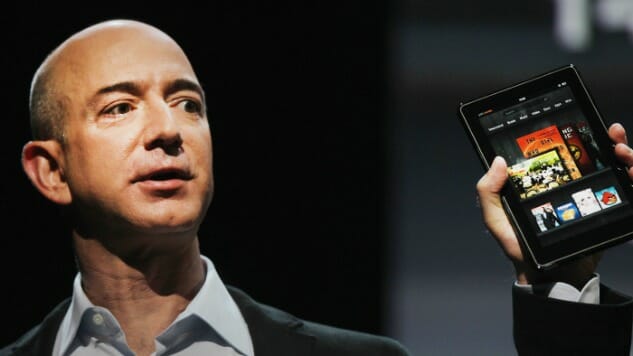What Does Amazon Music Unlimited Mean for the Streaming Industry at Large?
Photo by Spencer Platt/Getty Images
When the news broke today that Amazon was finally releasing a music-streaming service called Music Unlimited, the first thing I thought was, “Wait, Amazon didn’t already have a streaming service?” My assumptions weren’t totally unfounded—rumors of an Amazon music-streaming service had been circulating since the start of 2016. And I suppose since Amazon offers almost literally everything else—streaming television and movies, plus the ability to order everything from international plug adaptors to luxury cat food—I had just, well, figured. But! I wasn’t entirely wrong: If you’re a Prime member, for $99 a year, you could take advantage of Prime Music, which featured “a growing selection of two million songs, always ad-free and on-demand.” So maybe you could say that I was half-right.
Anyway, now Amazon is offering a legitimate streaming-music service with not just two million songs—more like millions on millions, courtesy of its new partnership with the Big Three: Sony, Warner and Universal. So let’s break down the price tiers: In order to access Music Unlimited, Prime subscribers can pay $8 a month, while the rest will pay $10. And if you own an Echo speaker, then you only pay $4 a month. So it sounds like if you’re a loyal Amazon customer, Music Unlimited will be the friendliest on the wallet, compared to Spotify (also $10 a month), Apple Music ($10 a month, or $15 for a family of six). Then there’s TIDAL ($10 a month, or $20 for high-fidelity sound), but I think we can all agree that TIDAL’s never-ending onslaught of negative publicity, they never have and probably never will pose much of a threat to the streaming marketplace at large, no matter how much money Jay Z spends or how many charity concerts they organize.
But can Amazon compete? What can the media giant, which started in the mid-’90s as an online bookstore, bring to the streaming-music world? According to The Verge, Amazon isn’t all that interested in nabbing exclusives, which should be a relief for Apple—they have the lion’s share of that these days. Here’s what they do have: a recommendations engine for new music, algorithmic and handmade playlists, apps for Android, iOS, Sonos and desktop (plus Amazon’s Fire tablets and set top boxes), the ability to automatically download music Amazon thinks you’ll like, and lyrics integration.
-

-

-

-

-

-

-

-

-

-

-

-

-

-

-

-

-

-

-

-

-

-

-

-

-

-

-

-

-

-

-

-

-

-

-

-

-

-

-

-








































